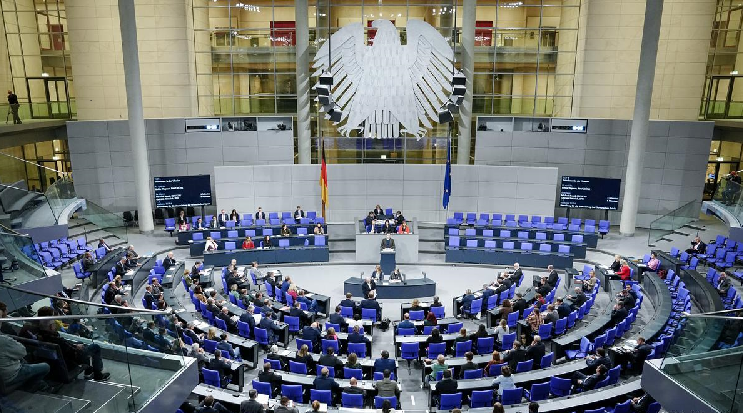Christian Dürr, the leader of the Free Democratic Party’s (FDP) parliamentary group, has criticized the immigration policy of the traffic light coalition. He has raised concerns about Germany’s ability to provide subsidiary protection to a large number of asylum seekers. In an interview with Frankie Media Group newspapers, Dürr questioned the right of individuals facing risk in their home country to seek refuge in Germany. He expressed hope that the European Union would implement measures to limit subsidiary protection.
Dürr wants to reopen the discussion about Germany’s immigration policy. He argues that the current policy of the traffic light coalition, which focuses on tightening deportations and eliminating immigration, is no longer adequate. Dürr insists that Germany should not provide subsidiary protection to individuals who are facing dangerous situations in their home countries. In his view, asylum should not be granted to individuals who are threatened in their home countries. Dürr anticipates that this issue will not be resolved to the satisfaction of the Green Party.
The leader of the FDP parliamentary group believes that, following the European elections, Germany and other EU countries need to engage in an open debate on asylum. It is argued that the current provision of subsidiary protection to a large number of asylum seekers is no longer suitable and that Brussels has the power to address this situation. Furthermore, the results of the European elections indicate that people expect a more serious approach to the issue of migration.
Markus Söder, the leader of the Christian Social Union (CSU) party, has recently called for the cancellation of subsidiary protection for Syrians and Afghans. This is concerning, as individuals from these countries face significant risks such as civil war, the death penalty, and torture. Furthermore, Germany is currently providing subsidiary protection to many Syrians.
After the European elections, it is expected that there will be an increased focus on the migration issue in Europe. It is possible that the EU Commission will propose changes to the EU’s asylum and migration laws. If this happens, EU governments will need to negotiate with the European Parliament to further tighten the European asylum policy.





